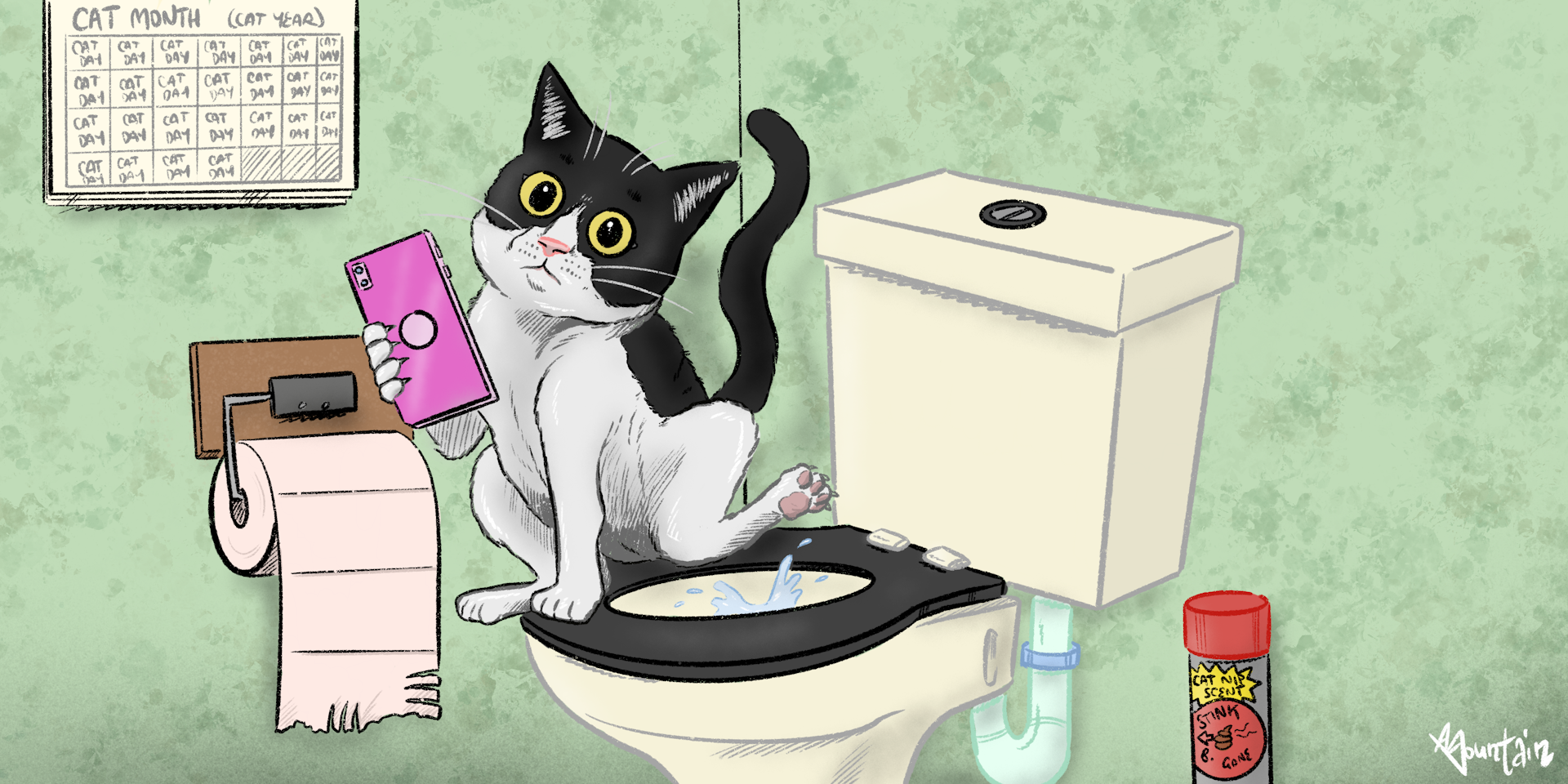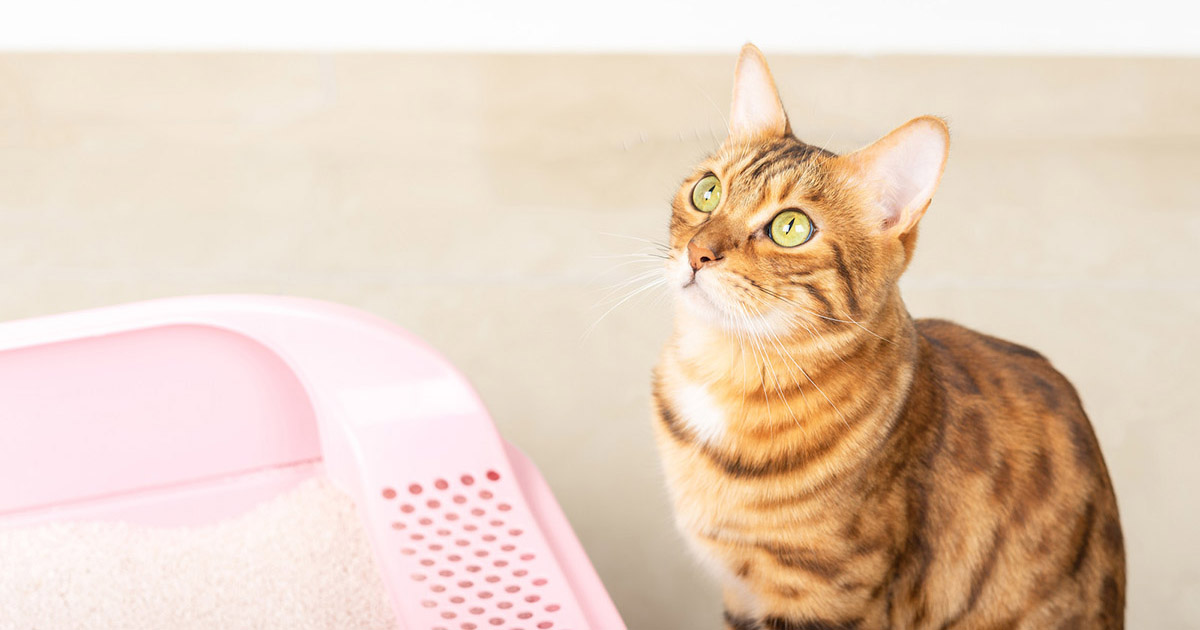Why Flushing Cat Poop Down Your Toilet Is Bad - Suggestions for Correct Disposal
Why Flushing Cat Poop Down Your Toilet Is Bad - Suggestions for Correct Disposal
Blog Article
What're your opinions about Don’t flush cat feces down the toilet?

Intro
As pet cat owners, it's essential to bear in mind how we throw away our feline buddies' waste. While it may seem convenient to purge cat poop down the toilet, this technique can have detrimental effects for both the environment and human wellness.
Alternatives to Flushing
Thankfully, there are much safer and a lot more accountable means to throw away pet cat poop. Consider the complying with options:
1. Scoop and Dispose in Trash
One of the most usual technique of throwing away feline poop is to scoop it right into an eco-friendly bag and throw it in the trash. Make sure to use a specialized litter scoop and get rid of the waste immediately.
2. Usage Biodegradable Litter
Opt for eco-friendly feline clutter made from products such as corn or wheat. These trashes are environmentally friendly and can be safely gotten rid of in the garbage.
3. Hide in the Yard
If you have a lawn, take into consideration hiding cat waste in a marked area away from veggie gardens and water resources. Make sure to dig deep enough to avoid contamination of groundwater.
4. Set Up a Pet Waste Disposal System
Purchase a pet garbage disposal system specifically created for cat waste. These systems make use of enzymes to break down the waste, reducing smell and ecological effect.
Health Risks
Along with environmental worries, purging pet cat waste can also position wellness risks to people. Feline feces may have Toxoplasma gondii, a parasite that can create toxoplasmosis-- a possibly extreme disease, particularly for expecting women and people with weakened immune systems.
Ecological Impact
Purging feline poop introduces dangerous microorganisms and bloodsuckers right into the water supply, positioning a considerable danger to water environments. These impurities can adversely impact marine life and concession water high quality.
Final thought
Responsible pet possession extends past giving food and sanctuary-- it additionally includes correct waste administration. By avoiding purging feline poop down the toilet and opting for alternative disposal approaches, we can reduce our environmental footprint and protect human wellness.
Why Can’t I Flush Cat Poop?
It Spreads a Parasite
Cats are frequently infected with a parasite called toxoplasma gondii. The parasite causes an infection called toxoplasmosis. It is usually harmless to cats. The parasite only uses cat poop as a host for its eggs. Otherwise, the cat’s immune system usually keeps the infection at low enough levels to maintain its own health. But it does not stop the develop of eggs. These eggs are tiny and surprisingly tough. They may survive for a year before they begin to grow. But that’s the problem.
Our wastewater system is not designed to deal with toxoplasmosis eggs. Instead, most eggs will flush from your toilet into sewers and wastewater management plants. After the sewage is treated for many other harmful things in it, it is typically released into local rivers, lakes, or oceans. Here, the toxoplasmosis eggs can find new hosts, including starfish, crabs, otters, and many other wildlife. For many, this is a significant risk to their health. Toxoplasmosis can also end up infecting water sources that are important for agriculture, which means our deer, pigs, and sheep can get infected too.
Is There Risk to Humans?
There can be a risk to human life from flushing cat poop down the toilet. If you do so, the parasites from your cat’s poop can end up in shellfish, game animals, or livestock. If this meat is then served raw or undercooked, the people who eat it can get sick.
In fact, according to the CDC, 40 million people in the United States are infected with toxoplasma gondii. They get it from exposure to infected seafood, or from some kind of cat poop contamination, like drinking from a stream that is contaminated or touching anything that has come into contact with cat poop. That includes just cleaning a cat litter box.
Most people who get infected with these parasites will not develop any symptoms. However, for pregnant women or for those with compromised immune systems, the parasite can cause severe health problems.
How to Handle Cat Poop
The best way to handle cat poop is actually to clean the box more often. The eggs that the parasite sheds will not become active until one to five days after the cat poops. That means that if you clean daily, you’re much less likely to come into direct contact with infectious eggs.
That said, always dispose of cat poop in the garbage and not down the toilet. Wash your hands before and after you clean the litter box, and bring the bag of poop right outside to your garbage bins.
https://trenchlesssolutionsusa.com/why-cant-i-flush-cat-poop/

As a person who reads about Can You Flush Cat Poop Down The Toilet?, I figured sharing that piece of content was worth the trouble. Sharing is caring. You won't know, you might be helping someone out. Thank-you for taking the time to read it.
Click Here Report this page